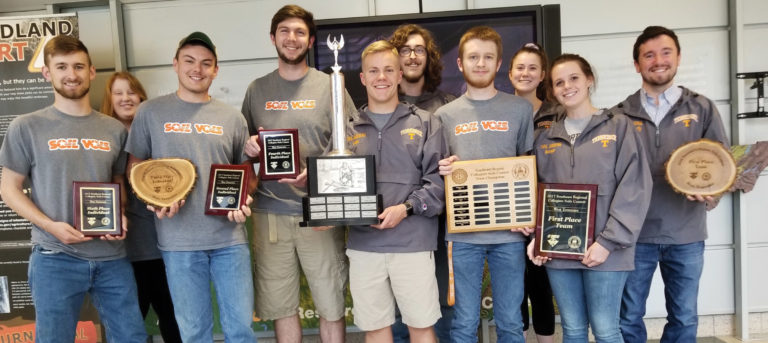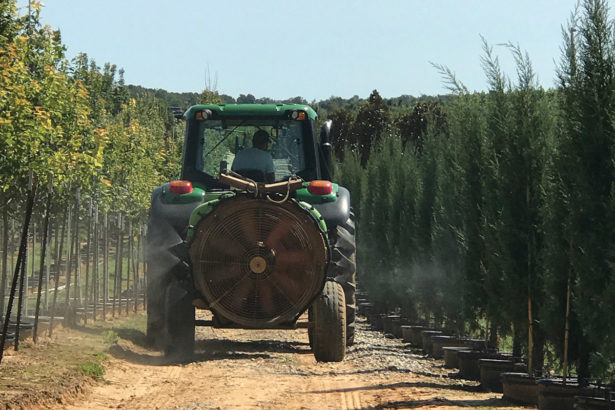Last year Tennessee Alumnus readers were introduced to a project to determine the 10 plants that most shaped Tennessee. Natalie Bumgarner and Andy Pulte (Knoxville ’08, ’16) of the Department of Plant Sciences led a team that sorted through more than 600 nominations. The winners are American chestnut, beans (several varieties), corn, cotton, dogwood, ginseng, grasses (prairie and turf), tobacco, white oak and, of course, kudzu. The pair intend to use the project to influence future curricula for elementary schools and other initiatives. Photos and detailed descriptions of the project and plants are online at tiny.utk.edu/TN10Plants.
UTIA Named Best Judge of Soils in Nation, World

UTIA’s soil-judging team bested 22 collegiate teams to win the national title in the National Collegiate Soils Contest, which requires students to identify, evaluate, classify and describe three soil profiles. David Gentry, of Clinton, now a senior in environmental and soil science, placed third in the individual competition and participated as one of eight members of Team USA in the International Soil Judging Contest in Rio de Janeiro, Brazil.
UT’s Andrew Sherfy (Knoxville ’06, ’08), a lecturer in Biosystems Engineering and Soil Science, served as one of the two team coaches. The eight U.S. students were split into two competing teams that placed first and second in the overall competition. Gentry participated on the winning team, and he placed third in individual competition.
Intelligent Sprayers to Transform Industry

Tennessee’s McMinnville is known as the Nursery Capital of the World, and Tennessee producers of landscape trees, shrubs, vines and perennials are poised to adopt an industry-wide change that will benefit society. UTIA scientists are among a national team to test revolutionary sprayer technology that uses a laser, sensors and variablerate nozzles along with a complex algorithm that allows the sprayer to “see” a plant, detect its size, shape and density and then apply the right amount of pesticide needed. Users of the intelligent spray technology can reduce pesticide costs by as much as $230 per acre of production per season and reduce the amount pesticides used.
Distinguished Service Awarded

The Association of American Veterinary Medical Colleges (AAVMC) has awarded Elizabeth Strand (Knoxville ’98, ’03) the 2019 AAVMC Billy E. Hooper Award for Distinguished Service.
Strand, an associate professor in the Department of Biomedical and Diagnostic Sciences, founded the UT College of Veterinary Medicine social work program, the nation’s first to define veterinary social work as a sub-specialty. The award is given by the AAVMC to an individual whose leadership and vision has made a significant contribution to academic veterinary medicine and the veterinary profession.


